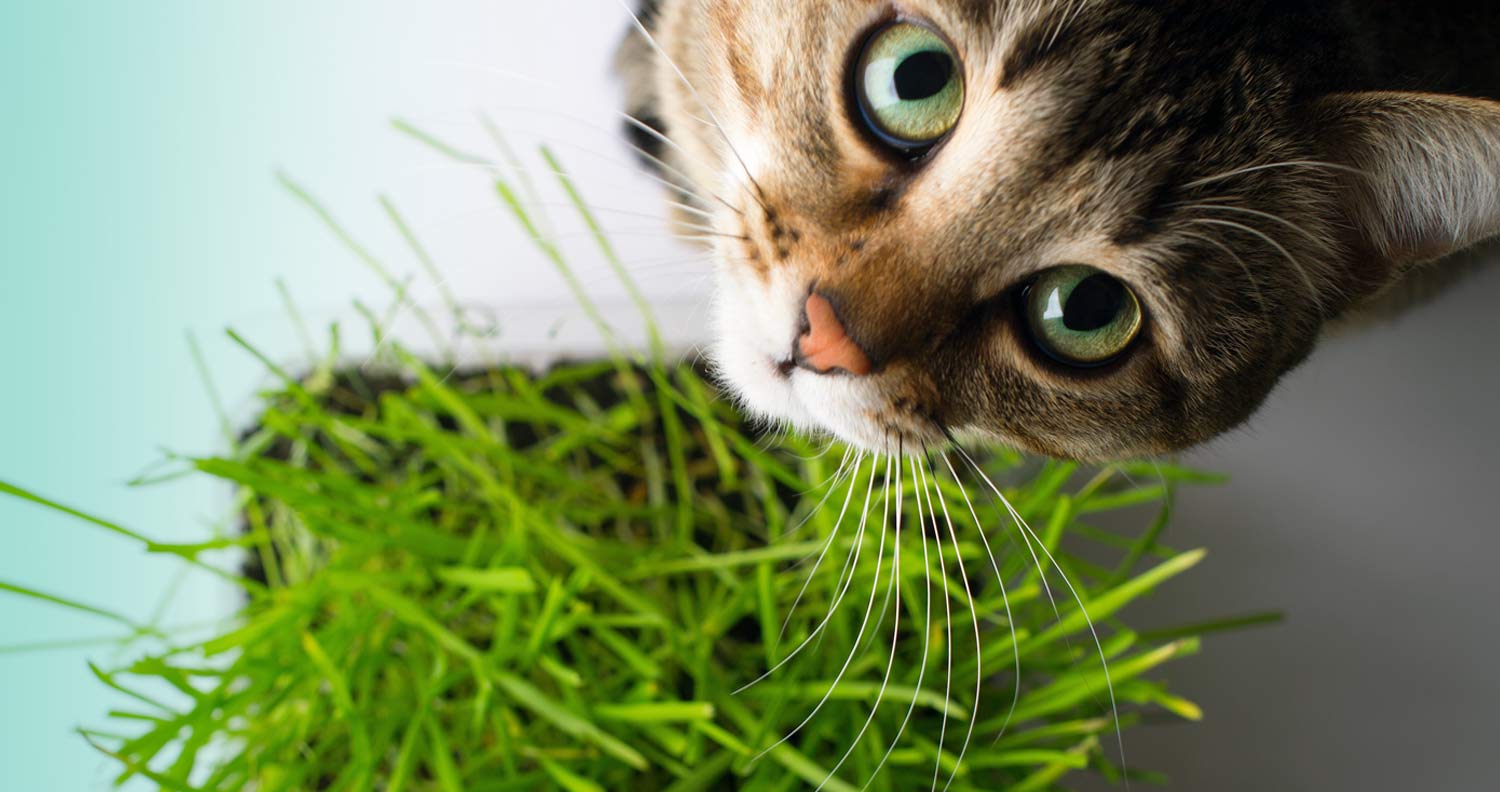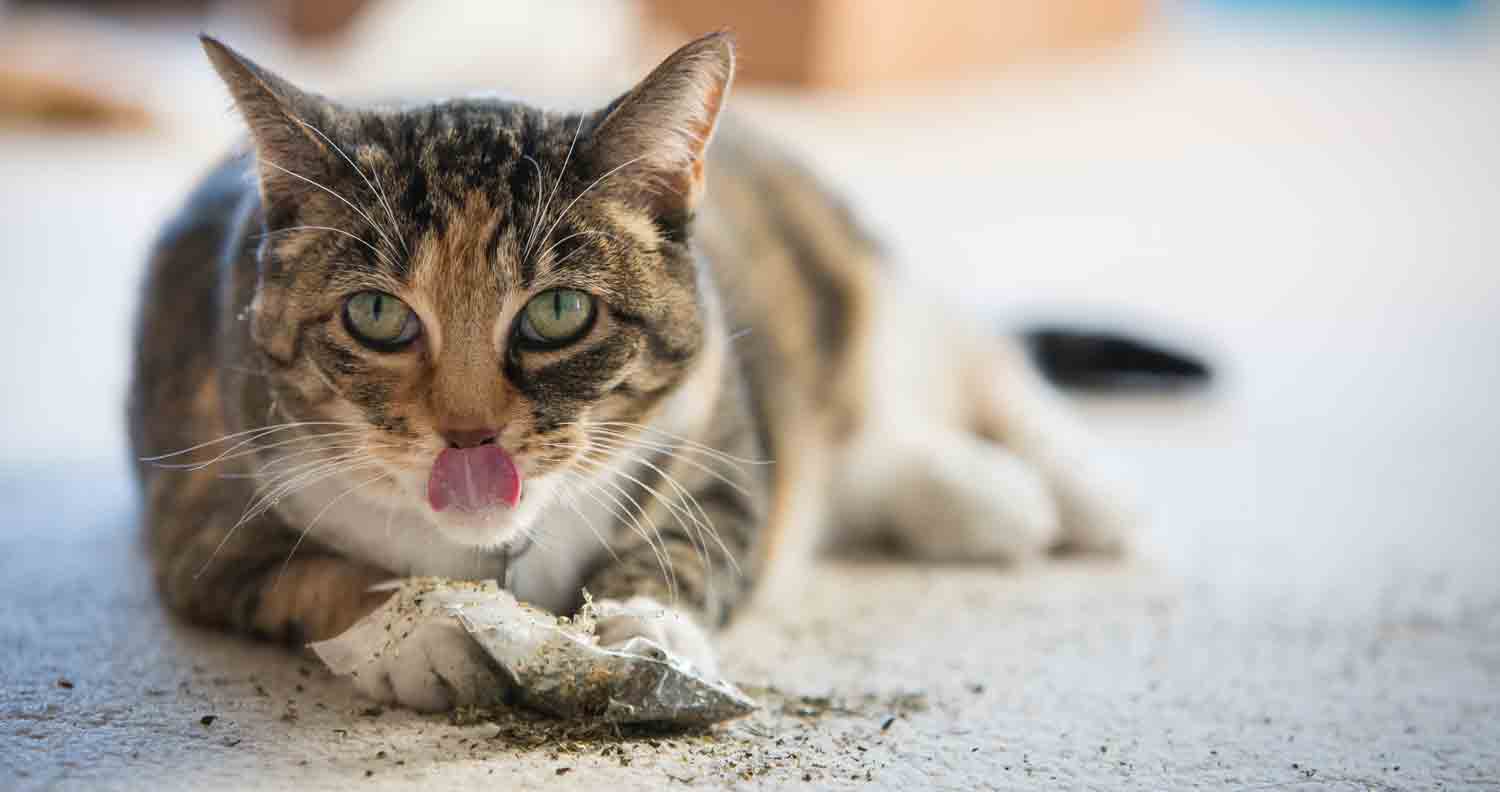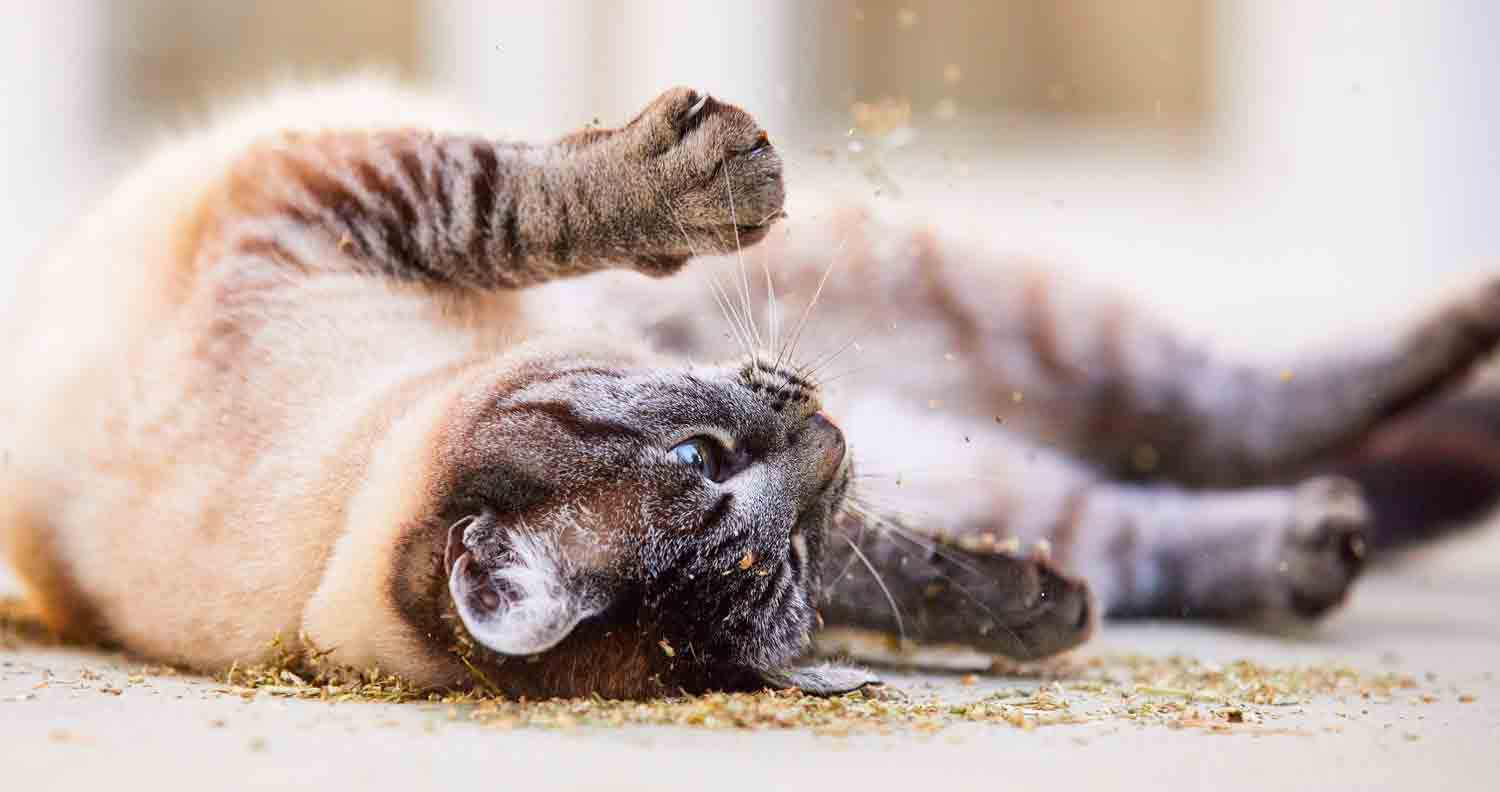What Does Catnip Do to Cats? (Can Cats Eat Catnip and Can Kittens Have Catnip?)
Share:

Catnip is widely associated with cats in a state of euphoria. It is marketed as a magic product that lifts the feline's mood and boosts its energy levels.
But does it have the same effect on all cats? Is it pot or weed for cats? Do they get high? And what makes catnip so appealing to cats? Read on to get the answers to these questions.
What Does Catnip Do to Cats? (in short)
Catnip affects the brain of a cat when it's eaten or inhaled. When a cat encounters catnip it may act differently, rub, roll around, chew, nibble bite, or lick it, causing the catnip herb to take effect, entering the brain by way of the nose. This behavior will generally last around 15 minutes.

Read this next: 11 Best Catnip Toys of The Year!
What Is Catnip?
Catnip is a herb and is a member of the mint family widely used by humans for its sedative and calming effects. Indigenous to Europe, Africa, and Asia it was taken to North America during the European settlement.
The plant produces a compound called nepetalactone meant as an insect repellent. When a cat sniffs it, licks, or bites a catnip leave or blossoms, nepetalactone is released.
Catnip naturally grows in places that experience high amounts of sunlight and moisture. If you can't find this plant in your garden, you can buy it in fresh, dried, or spray form.
Also, there are toys that are infused with catnip oil.
What Does Catnip Do?
Scientists have studied catnip and their findings interestingly show that catnip's effects are not just in domestic cats!
Big cats like lions, leopards, and tigers can also have a reaction to catnip! It's hard to imagine a big wild lion going all wonky on some wild fresh catnip! I imagine it uses the nearest tree as a giant scratching post.
Cats start to feel the effect of catnip shortly after inhaling or eating it. When the kitty smells, rubs on, licks, or chews the plant, the nepetalactone oil finds its way into the amygdala region of the cat's brain.
Research hasn't really come up with a clear answer on what's the real effect of catnip on felines. It may be some type of sexual response but it does seem to activate a 'high' response in cats.
Some studies show that catnip may cause feeling-good reactions in cats when smelled, making them more active, playful, and motivated.

Can Cats Eat Catnip?
When eaten, catnip is said to have a soothing effect on felines, reducing their stress and making them less prone to aggression.
However, this also makes them more tired and lazy. There are also studies stating that catnip consumption has an individual effect on each cat.
Why Do Cats Like Catnip Oil?
Depending on age, gender, and gonadal status, felines react to catnip either actively, passively, or a combination of both.
Felines are very receptive to a volatile oil (an oil that evaporates in the air) which is found in the stems and leaves of the catnip herb.
When they get a whiff of catnip, they behave similarly to female cats in heat displaying strange vocalizations and erratic kitty movement.
Oddly male cats can experience this too!

Read this next: Are Bubbles Safe For Cats? (Are Catnip Bubbles Toxic?)
Can Kittens Have Catnip?
Kittens have no reaction to catnip due to their underdeveloped Jacobson's organ which detects and analyzes scents.
The organ gets fully developed when the young cat reaches maturity. After all, since kittens are in a playful mood all day long and aren't prone to stress and aggressive behavior, there is no point in giving them catnip.
Can Cats Overdose On catnip?
Catnip overdosing is not common in cats. However, felines can experience diarrhea and vomiting if they consume too much of this herb.
Other cats may become aggressive from large amounts of catnip ingested. While these episodes last for 10-15 minutes, it's still enough for your overly stimulated cat to tear up the curtains, scratch the furniture, damage the walls, and annoy you to no end.
That being said, try to prevent your cat from eating or sniffing too much catnip.

Read this next: Why Is My Cat Panting? (Do Cats Pant and Should I be Worried?)
Is Catnip Bad For Cats?
While a lazy cat sitting calmly on the sofa all day long is a paradise for many pet owners, excessive passivity is not good for the kitty's health.
The kitty can get obese and, most importantly, the lack of activity will affect its cognitive and physical abilities.
It will lose its analytical skills and memory, get more clumsy, and perform worse at jumping, climbing, and hunting over time.
The only way to stimulate your cat mentally and physically is to get it engaged in diverse enrichment activities every day.
There are many interactive catnip-filled toys on the market you can use to spark your cat's interest in playing and moving.
If you don't have any, you can infuse ordinary toys with catnip spray. That works equally well.
If your kitty gets tired of all its interactive toys or when activities are limited, it will fall into a state of lethargy.
To revive its attraction to the toys, spray some catnip on them. A couple of sniffs will make your furry friend jump off the couch and joyfully play with its once-boring and annoying toys.
Cat owners can even try blowing cat bubbles infused with cat nip!
They work a treat and can get a lazy cat moving!
If you buy dried catnip, you are best off opting for leaves or blossoms, as stems provide a worse effect.
What Does Catnip Do To Cats? The Verdict
So, what does catnip do to cats? No doubt, catnip is one of the most effective ways to encourage cat play and exercise. It can easily be applied in catnip toys to entice cats to play which is an added bonus.
Also, catnip can be given to felines that lead a sedentary lifestyle to make them more active.
It is perfectly safe and cats generally love the feeling it gives them. Catnip is certainly another weird and wonderful addition to the crazy world of cats!
Read this next: Cat Grass: Your Complete Guide
Share:

